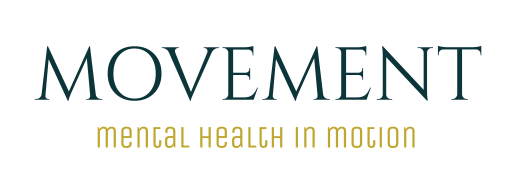As this Friday is the Friday before Thanksgiving, I thought it would be a good idea to take a break from the appearance assumptions and focus on the holidays. The holidays are depicted as a wonderful time. It’s a time to celebrate and spend with family, and a time for food. Lots of food. For some, they welcome this time of year with open arms, while others dread it and want to run from it. For those suffering with an eating disorder or for those who are in recovery, the holidays can be a time of anxiety, panic, overwhelm, and stress. They can also bring about past memories, which can cause painful emotions to surface.
Sitting down at the table with family and facing all that food can be paralyzing. Regardless of the types of emotions that the holidays trigger, there are some things you can do to help ease these emotions, challenge negative thoughts, and to combat fears.
Try your best to stick to your normal eating routine/meal plan—If you have worked with your therapist or treatment team to create a meal plan, try your best to stick to the that plan and ask them for tips on how to best stick to it.
Plan ahead—If you can, try to find out what is on the menu and what time you will be eating. If there is something on the menu that you are uncomfortable talk with the host and let them know. If talking with them would be too difficult, ask someone on your support team to help you. You can also pack your own snacks to bring along (just in case).
Accept where you are in your recovery—No matter where you are in recovery, just because it is the holidays, doesn’t mean that your struggles with food will magically disappear. If you expect them to, you might be extremely disappointed to find that they don’t. You can’t speed up the recovery process (it would be a lot nicer if you could). Remind yourself that the holidays are only part of the year, and won’t make or break your recovery success.
Have a support plan—Have the phone numbers of your support team on hand and ready to go if needed. Also, identify a person (family or friend) that can help ground you and cope with stressors.
Have an exit plan—This is for breaks or if you need to leave all together. Feel free to take some time away from the party to take some deep breaths. Find a quiet place where you can do this, away from the crowd. If you become too overwhelmed and can’t calm yourself down, it’s perfectly okay to leave. Have a back up plan in place. This can be going to the movies or going home, putting on your pj’s and having a warm cup of tea. Most of the time people won’t even end up using the back up plan. They just feel better when they know it is an option.
Say no if necessary—You are allowed to say no to eating certain foods that you think might trigger you. You also have the right to say no to attending the family gathering all together. If you know there are some family members that you are just not ready to face, that’s okay. You are allowed to put you and your health (mental, emotional, and physical) first.
Be open to new experiences—If there are things or activities you want to try, don’t let your eating disorder stop you. Stepping out of our comfort zone can help increase your sense of self-esteem and help you get comfortable doing things you wouldn’t normally do or eating in front of others. Remember that you are surrounded by family and friends who love you.
Enough is a decision not an amount—YOU get to decide this. You get to decide when you’ve had enough to eat, when you’ve had enough family time, etc.
You’re allowed to change the subject from “diet-talk”—There is always that family member that says something along the lines of, “After all this food, I’m going to need to go on a diet!”. If diets become the talk of conversation around the dinner table and it causes you distress, you are allowed to change the subject.
Food is not the enemy—Food is fuel and helps your body function at its best. Food is also something that can be celebrated and eaten for pleasure. What you choose to eat does not define you as a person. There is no moral code for food.
Avoid the scale—If you are already feeling distress about the food during the holidays, the scale could be another thing that triggers you and compounds the distress.
Set boundaries—It’s perfectly okay to ask people to NOT comment on your eating habits, weight, size, or shape.
Focus on the positive—Focus on the positive parts of the holiday season. Maybe it is seeing family members you normally don’t, maybe you like the look of snow, or maybe it is past happy memories that make you feel warm and fuzzy. Whatever it is, focus on all the positive things you notice and keep happy traditions alive.
Talk about your fears—The holidays are a time to support each other. There are people in your life that want to be there for you and listen to you. It may seem easier to remain quiet, but keeping your emotions and fears stuffed inside can make things worse, and they end up coming out in ways you didn’t intend them to.
If you relapse—don’t beat yourself up. Try to put it behind you and move on. Return to your plan and try again.
The holidays don’t last forever and you will get through them. You got this!
Happy Friday and Happy Holidays to all!


